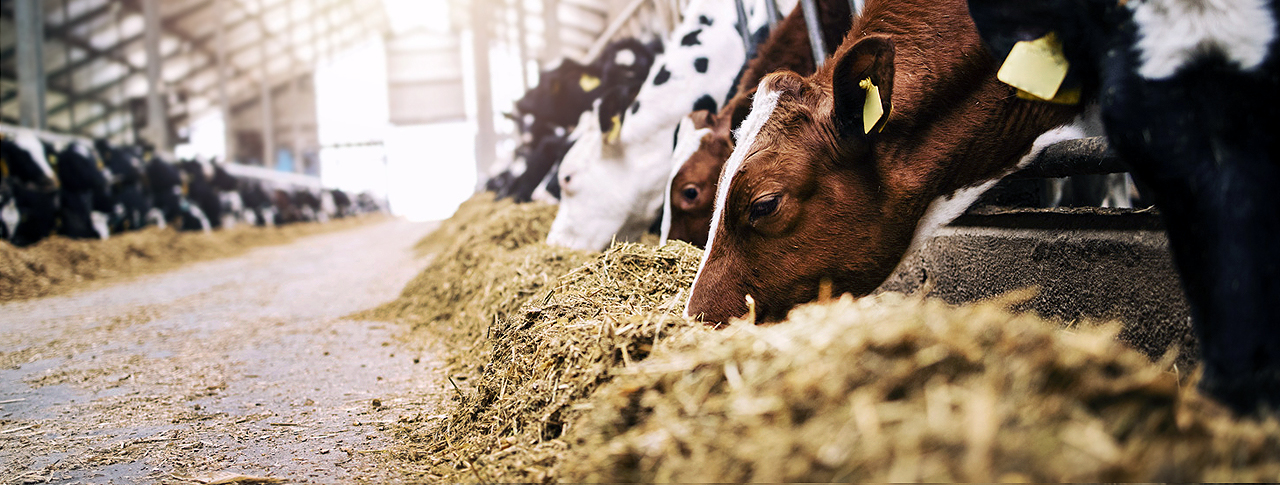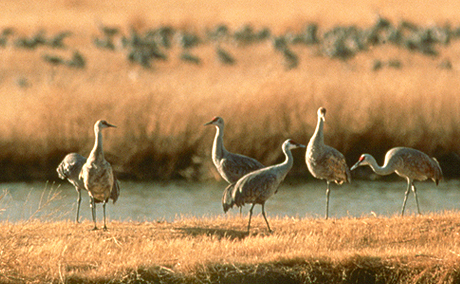- Welcome to the Davis College
- Agricultural & Applied Economics
- Agricultural Education & Communications
- Animal & Food Sciences
- Landscape Architecture
- Natural Resources Management
- Plant & Soil Science
Invest in Your Future
A degree from the Davis College of Agricultural Sciences and Natural Resources has the power to build skills, expand horizons, and open doors. Click through the tabs above for a sample of the career opportunities that emerge with a Davis College degree.
A Degree in Agricultural & Applied Economics

If you’re interested in the business and management side of today’s agricultural industry,
then Department of Agricultural and Applied Economics may have what you’re looking
for. Students in Agricultural and Applied Economics strive to improve efficiency,
lower costs, and increase profit in agricultural and food-related businesses and firms.
You will take courses in agribusiness management, accounting, economics, marketing,
finance, management, statistics, policy, trade and agribusiness law.
Undergraduate Degree Programs
The Department of Agricultural and Applied Economics provides the opportunity for students to learn about agribusiness, agricultural and resource economics, business management, applied economics, mathematics, statistics, accounting, technical writing, finance, and public speaking, among other subjects that are part of a business-economics curriculum. The Department offers three nationally- recognized undergraduate degree programs:
- Agricultural & Applied Economics: This degree allows the flexibility to pursue a number of minor specializations (e.g., animal science, agronomy, general business, personal financial planning, natural resource management, etc.)
- Agribusiness: This program is a hybrid of the AAEC program and the Bachelor of Business Administration (B.B.A.) in General Business, and integrates the business management curriculum of both programs into a comprehensive agribusiness degree.
- Dual Degree: Dual degree in Agricultural and Applied Economics and General Business. A graduate of this program receives two separate degrees (from AAEC and a second degree from the College of Business).
Why Major in Agricultural & Applied Economics?
You may choose this major if you want to:
- Work in management, marketing or finance
- Acquire skills to start and operate your own business
- Prepare for law school and a career in business or agricultural law
Career Opportunities for Graduates
The number of job openings in the agricultural industry annually exceeds the number of available qualified graduates. A variety of career choices are available to you:
- Business and Finance
- Business Management
- Commodity Broker
- Distribution/Logistics
- Education
- Energy Resource
- Farm and Ranch Management
- Government
- Human Resource Management
- International Trade and Affairs
- Law School
- Livestock Manager
- Management
- Marketing
- Marketing and Sales
- Policy Analysis and Formulation
- Production Supervision
- Real Estate
A Degree in Agricultural Education & Communications

In addition to receiving a quality education, Agricultural Education & Communications
students are part of a family-like atmosphere and attend many classes together at
the university. Faculty members in the department use a student-centered approach
to show students how to successfully function in today's fast-paced, technologically
advanced job market.
Undergraduate Degree Programs
The Agricultural Education and Communications Department offers two majors: Interdisciplinary Agriculture and Agricultural Communications. Students majoring in Interdisciplinary Agriculture for the B.S. degree may choose from two tracks: teacher certification or agricultural leadership.
The teacher certification track involves courses from many departments in the Davis College of Agricultural Sciences & Natural Resources. Elective courses can be selected in areas of special interest. Job placement in high schools, cooperative extension and community colleges offers a life-long career for many graduates and alternative employment opportunities for others. Students seeking teacher certification may also receive a degree in another agricultural area and, with proper planning, receive certification in agricultural education. Students seeking teacher certification should also refer to the section entitled "Teacher Education."
The agricultural leadership track prepares students to enter a broad array of careers either in the public sector (legislative assistants, agricultural agencies) or private sector (training and development, management or sales in agricultural, food, and natural resource industries). This degree is also recommended for students interested in continued studies in professional schools such as Law or Business Administration).
Agricultural communications allows students to specialize in both mass communications and agriculture. The communications component consists of prescribed courses in journalism, speech, telecommunications, photography, and advertising. Students must select one of three areas for specialization: electronic media, print media, or public relations/marketing. Selection of technical agriculture courses allows students to specialize in areas of interest and to reinforce their general knowledge in agriculture.
The department offers a minor in agricultural leadership for students majoring outside the department.
Degree Programs
- Bachelor of Science in Interdisciplinary Agriculture (teaching or leadership options)
- Bachelor of Science in Agricultural Communications
- Master of Science in Agricultural Education
- Master of Science in Agricultural Communications
- Doctor of Education in Agricultural Education
The department participates in the interdepartmental program leading to the Master of Agriculture degree with an option in agricultural communications or agricultural extension education.
Career Opportunities for Graduates
The number of job openings in the agricultural industry annually exceeds the number of available qualified graduates. A variety of career choices are available to you:
- Agribusiness
- Agricultural Communications
- Business Administration
- Distance Education
- Education
- Extension
- Government Service
- International Agricultural Development
- Law
- Leadership Education
- Management
- Marketing
- Mass Media
- Production Agriculture
- Public Relations
- State and Federal Agencies
- Teacher Education
- Trade and Professional Organizations
A Degree in Animal & Food Sciences

If you're interested in the science or business of animal management, our animal science
majors might be a good fit for you. And, if you want to use science to solve real-world
problems there’s our food science major, which integrates microbiology, chemistry,
engineering, and nutrition around the study of food.
Why Major in Animal & Food Sciences?
You may be interested in this major if you:
- Are preparing for graduate or veterinary school.
- Would like a career in research relating to and/or using animals.
- Would like to manage a farm or business related to animal agriculture.
- Like to work with people in addition to animals and may be interested in a career in technical sales or service, cooperative extension, or the promotions industry.
- Want to develop new food products
- Want to implement efficient food processes
- Want to educate the public on food safety
Undergraduate Degree Programs
- Bachelor of Science in Animal Science – Animal Science Option
- Bachelor of Science in Animal Science – Animal Industry Option
- Bachelor of Science in Food Science – Science Option
- Bachelor of Science in Food Science – Industry Option
Career Opportunities for Graduates
The number of job openings in the agricultural industry annually exceeds the number of available qualified graduates. A variety of career choices are available to you:
- Ag Finance
- Animal Management
- Biotechnology Research
- Cooperative Extension
- Education
- Food and flavor chemistry
- Food engineering
- Food microbiology
- Food Safety
- Genetics And Nutrition
- Government
- Graduate and professional school
- Health agencies
- Industry Relations
- Management
- Marketing
- Pharmaceutical Research
- Product development
- Quality Assurance
- Regulation
- Research
- Sales And Service
- Sensory analysis
- Technical support
- Veterinary Medicine
A Degree in Landscape Architecture

Use your creativity to go green. Our Landscape Architecture major, known as one of
the top programs of its kind in the state, combines an emphasis on sustainability
in arid and semi-arid community planning and design; along with computer-aided design
and landscape construction.
Landscape architecture as a field deals with the planning and design or arrangement of man-made and artificial elements on the land. The landscape architecture program instills in students the basic skills and knowledge required to enter the profession in the public or the private sector. The program emphasizes physical design and planning in both the natural and urban environment. The department participates in the interdisciplinary land use planning, management, and design program.
Why Major in Landscape Architecture?
You may choose this major if you want to:
- Create and design urban and rural landscapes
- Improve our environment by using plant materials to enhance our surroundings
- Manage the health and vitality of landscapes
Degree Program
It is a four-year, design-intensive, professional program leading to the Bachelor of Landscape Architecture (B.L.A.) degree. The B.L.A. degree is accredited by the American Society of Landscape Architects. We have one of only two programs in Texas that is fully accredited, which means, that once you graduate you can go directly into the job field as a Landscape Architect, and apply for licensure.
Projects Involving Landscape Architects
There is a wide range of opportunities for landscape architect. Landscape architects plan and design traditional places such as parks, residential developments, campuses, gardens, cemeteries, commercial centers, resorts, transportation facilities, corporate and institutional centers and waterfront developments. They also design and plan the restoration of natural places disturbed by humans such as wetlands, stream corridors, mined areas and forested land. Their appreciation for historic landscapes and cultural resources enables landscape architects to undertake preservation planning projects for national, regional and local historic sites and areas.
Career Opportunities for Graduates
Landscape Architecture graduates traditionally enjoy a high job-placement rate. A variety of career choices are available to you:
- Academic Campuses
- Communities Design
- Conservation
- Corporate and Commercial Design
- Gardens and Arboreta
- Golf Course Architecture
- Green Streets Design
- Historic Preservation and Restoration
- Hospitality and Resorts
- Institutional Facilities
- Interior Landscapes
- Landscape Art and Earth Sculpture
- Monuments
- Park & Recreation Planning
- Reclamation of Sites
- Residential Design
- Security Design
- Site Planning
- Streetscapes and Public Spaces
- Sustainable Design
- Therapeutic Gardens
- Traditional Landscape Architecture
- Transportation Corridors and Facilities
- Urban Design
A Degree in Natural Resources Management

If you’re interested in a career that combines indoor and outdoor activities in the
management of range, wildlife and fisheries, Natural Resources Management might be
a good fit for you. This major provides an integrated program of study for undergraduate
students interested primarily in conservation science, fisheries biology, range conservation,
ranch management and wildlife biology. The department has a broad but unified mission:
To provide quality instruction to our students, conduct top-quality research in the
broad field of natural resources management, and offer outstanding service to the
public at large.
What Is Natural Resources Management?
Natural resources are any part of our environment that we can use to promote human well-being. Renewable natural resources, those resources whose perpetuation depends on human management, are the primary focus of natural resource managers and include rangeland, wildlife, fisheries, soils, and forests. Conservation implies a synergistic relationship between humans and the environment, and may be the most important application of ecology. It is the goal of the Department of Natural Resources Management to develop professionals with a sound understanding of ecology and skilled in the art, science, and conservation of renewable natural resource management.
Why Major in Natural Resources Management?
You may choose this major if you want to:
- Manage range, wildlife and fish species
- Learn more about human impacts on fish, wildlife and their habitats
- Have a career that combines indoor and outdoor activities
Degree Program
The Bachelor of Science in Natural Resources Management prepares students to plan, develop, manage, and evaluate programs to protect and regulate natural habitats and renewable natural resources. Students can select one of five emphasis areas within the major:
- Conservation Science
- Conservation Law Enforcement
- Fisheries Biology
- Range Conservation
- Ranch Management
- Wildlife Biology
Hands-On Experience
Faculty members in the Department of Natural Resources Management are recognized authorities in the areas of fire ecology, fisheries management, geographic information systems, range ecology, range management, watershed management, wetland ecology, and wildlife management. Diverse research programs within the Department provide many opportunities for students to become involved in the scientific process gain valuable training and experience.
Career Opportunities for Graduates
The number of job openings in the agricultural industry annually exceeds the number of available qualified graduates. A variety of career choices are available to you:
- Biologist
- Coastal Wetlands Biologist
- Conservation Biological Scientist
- Education
- Environmental Consultant
- Environmental Lawyer
- Fire Ecologist
- Fisheries Biologist
- Fisheries Manager
- Game Warden
- Geographic Information System Specialist
- Research Scientist
- Natural Resources Management
- Ranch Manager
- Rangeland Conservationist
- Wildlife Biologist
- Wildlife Rehabilitation
- Zoo Management
A Degree in Plant & Soil Science

Go green with majors that start from the ground up. Whether you’re interested in owning
your own business, working to protect natural resources, learning how to grow turfgrass,
working towards soil and water management, producing crops, or learning how to develop
new varieties of crops, our majors can help you achieve your goal. If you’re interested
in the science, business, and production of our earths most valuable resources, our
department can give you a well-rounded education and experience. The flexibility to
enter a variety of career fields is endless! We strive to create a positive learning
environment for our students on campus and at a distance. We have state of the art
facilities and dedicated faculty that equip our students for regional and global professions.
We don’t want you to just get an education, but we want to make your experience with
Texas Tech and the Department of Plant and Soil Science feel like home.
Why Major in Plant and Soil Science?
You may be interested in majoring in our department if:
- You want to grow and develop plants for better human nutrition, greater insect/disease resistance, or aesthetic qualities
- Help improve our environment by using plants, soil and water to modify our surroundings
- Understand the various roles our natural resources play in our everyday lives
Degree Program
We are a comprehensive academic department conducting research and offering coursework
and academic programs in all areas of the plant and soil sciences. We offer two undergraduate
degrees Horticultural and Turfgrass Sciences and Environmental Crop and Soil Sciences.
Each major having its own emphasis areas, they are as follows:
Horticultural & Turfgrass Sciences
With a degree in Horticultural and Turfgrass Sciences, you can turn a love of plants and fresh air into a lucrative career. Manage golf courses and athletic fields. Own your own nursery. Provide environmental consulting. Develop shade-tolerant strains of grass. Design environmental plantings for urban areas. Manage a commercial orchard, greenhouse, or botanical garden. Design, install and maintain Interiorscapes. The opportunities are endless.
- Horticultural Biotechnology
- Environmental Horticulture
- Plant Protection
- Horticultural Science
- Turfgrass
- Viticulture and Enology
Environmental Crop & Soil Sciences
Crop production agriculture has greater impact on environmental quality of air, soil, and water than any other human activity. Thus, proper management of cropping systems will yield marked environmental benefits and enhanced sustainability of this all-important industry. In Environmental Crop and Soil Sciences, students will learn ways to improve crop response to environmental conditions, improve efficiency of resource use for crops, reduce use of water resources, evaluate productivity and efficiency of cropping systems, conserve soil and water for future generations, and more. In other words, students will learn to improve environmental quality by improving management of soils and cropping systems.
- Crop Biotechnology
- Crop Protection
- Cropping Systems Management
- Environmental Soil and Water Science
- Forage and Grazing Systems
Career Opportunities for Graduates
The number of job openings in the agricultural industry annually exceeds the number of available qualified graduates. A variety of career choices are available to you:
- Agribusiness
- Business Management
- Communications
- Conservation
- Crop Consulting
- Crop Duster
- Crop Protection
- Education
- Environmental Consulting
- Extension
- Extension Service
- Fruit and Vegetable Production
- Sports Turf Maintenance
- Golf Course Superintendent
- Government
- Greenhouse Operations
- Horticulture Journalist
- Industrial Representative
- Land Management
- Landscape and Lawn Maintenance
- Landscaping
- Management
- Marketing and Sales
- Nursery and Greenhouse Production
- Parks and Recreation Management
- Pesticide Specialist
- Plant Biotechnology
- Plant Breeding
- Plant Genetics
- Public Gardens And Arboreta
- Research
- Research Aide
- Retail/Wholesale Operations
- Sod Production
- Soil Mapping and Conservation
- Sports Stadium Manager
- Teaching and Research
- Turfgrass Scientist
- Urban Horticulture
- Vegetation Manager
- Vineyard Management
- Wholesale Growers
- Winemaking and Vineyard Management
- Zoo Horticulture
More Resources for Figuring it All Out
Don't even know where to begin? We can use your likes, dislikes, goals, and skills to narrow down which fields best suit your unique self.
In the Davis College, we're here for you every step of the way, from choosing your academic pathway to finding a job, to preparing for success in your career. Check out our career resources to learn more:
Choose your classes, register for courses, schedule one-on-one coaching, finesse your writing skills, and more. Check out our academic support resources:
The Dr. Bill Bennett Student Success Center is a group of talented professionals in the Davis College Dean's Office charged with recruiting and retaining the best students for the college. Students can visit us to find out about student organizations, academic advancement, scholarship & internship opportunities, college events, university resources, and career development.

Davis College of Agricultural Sciences & Natural Resources
-
Address
P.O. Box 42123, Lubbock, Texas 79409-2123, Dean’s Office Location: Goddard Building, Room 108 -
Phone
(806)742-2808
